Season 2 Recap Part 2: From Stuffed Sharks to Data Reality
We wrap up Season 2 with episodes 13-16! Featuring Doron Fagelson's fascinating look at how data is transforming art commerce, Greg Abbott's insights on the tech behind your next trip, Olesya Khokhulia on enterprise partnerships beyond just delivery, and Alexey Utkin's brutally honest conversation about data reality. Four conversations that brought Season 2 to a close with valuable insights and refreshing honesty.
Transcript
Anni Tabagua: Hi there! Welcome back to our special recap of BizTech Forward Season Two. I'm Anni, your host, and what a great season we've had. Let's have a look at the highlights.
Episode 13: From Stuffed Sharks to Data: The Evolution of Art Trade
From stuffed checks to data – this was my favorite episode title. It's the one where Doron Fagelson, Senior Vice President of Media and Entertainment at DataArt, walked us through how technology is transforming art, from online marketplaces to how younger collectors are changing the game. Here's more from that fascinating chat.
Doron Fagelson: I think art businesses are definitely trying to think more about how they can leverage data as an asset. There are two big ways that it's certainly being implemented and leveraged.
One is the actual digitization of information about art – all the ways that you can enrich and augment artworks with metadata that's meaningful and that really provides descriptive attributes of data, how you're categorizing the different artworks, and how you can then use that to really provide great curation on your gallery website or your online platform. This is really essential to helping the collector find artworks more easily and discover things, and really helping artists to promote their work as well. That's one area – the whole aspect of data enhancing the artworks as objects and as assets.
The other area focuses very much on the end user and collector of some of these tools and platforms. Data is really helping companies understand buying behavior, helping to analyze different collectors in terms of their preferences, behavior, buying habits, and history, and, therefore, offer them much better insights and recommendations.
For me, data is so core to the art trade because it is a very important foundation for personalizing to collectors better and improving the discovery process, especially for online marketplaces today that have hundreds of thousands of works in some cases.
It's also how businesses can create this digital footprint or collector profile based on their interests and tastes – how they interact online, what artists they follow, which pages they visit, and how many times they might engage with a certain artist or genre of art.
Of course, the more accurate your collector profile and the more data attributes you can add, collect, and maintain to describe artworks, the better your personalized recommendations to collectors will be. It's very much a backbone of how platforms manage collections and inventory online, and really central to businesses trying to show their customers more relevant artwork to those collectors' needs.
Episode 14: Tech and Data Behind Your Next Trip
Greg Abbott, Head of Travel, Transportation, and Hospitality at DataArt, brought three decades of travel tech experience to discuss how the industry is evolving. We talked about AI, real-time data, and what's working and what's overhyped. Let's hear more.
Greg Abbott: I used to share a statistic from last year's results, but based on one of the hyperscalers that had shared some data around the number of proof of concepts in AI that actually got to production. I think last year the number was 4%. So not a lot of it made it to production. This year, one of the hyperscalers shared that it's up to 11%. So I think we're making progress.
I think that a lot of what you're seeing, or maybe you're not seeing yet, has been work that's behind the scenes in democratizing the data required to power the models that are going to perform the activities companies need to do to serve up offerings and personalize components of your journey.
The one place that you're probably seeing it – and if you follow the dollar, you usually get to the heart as quickly as possible – is revenue management and predictive analytics around pricing, which we've done a lot of work in this particular area. This is a place where you may find that you go shopping for one thing and you don't decide to buy it, and you come back and the price is different, almost like three or four minutes later. It's near real-time in terms of being able to extract money from your pocket.
Companies are looking to maximize the dollars that they can earn from people purchasing their goods and services. AI is probably hitting you in revenue management offerings. Obviously, the retailing and what you're seeing in advertising – you're seeing things near real-time when you talk about something, and probably even now they're listening to us. So you go back to the web search, and your results would be tailored to some degree.
I'm weaving into a number of different areas on that topic, but I think AI is going to become fabric. The AI tools are going to be ubiquitous. They're going to touch every aspect of our daily lives, and we as humans are going to be using them to be more and more productive. It's already taking place, but much of it is under the surface and not touching the travel experience yet.
I believe that's why it's an exciting time to be in travel. Once we democratize that data and build modern data platforms, it will unlock all of the advanced AI tools. You can see how fast things are moving with OpenAI. At the beginning of the year, they launched their generative models, and daily, you read about somebody new offering new use cases for their tools that companies are going to ingest.
Now it's more about speed – who can move faster, adopt the right tools, and sort of overhaul their companies and their organizations to become what we call the "AI-fication of everything." I think that's our next step in the journey.
Episode 15: It's Not Just Delivery – It's Partnership
Olesya Khokhulia, VP Enterprise Accounts at DataArt, shared really interesting things about what enterprise clients expect from technology partners. We discussed how relationships have changed and those quiet signals that build trust. Here's a bit from that discussion.
Olesya Khokhulia: Well, for me, business is always about relationships. I've never seen a successful business case without successful relationships and trust behind it. In my opinion, trust has always been a key factor. My vision is that you have to spend all your time with the customers. You have to be in the audience. You have to understand how the organization is working.
You should know them as people, as your friends. You should spend time together, even if it's a formal, conservative environment where informal communication with the partner or vendor is sometimes not allowed. Still, even here, you have to build the relationship because that's what always brings better results rather than just a vendor-customer relationship. There are real people behind the business.
I would say trust is the most important thing, but then you have to prove yourself. This is what competition is about. There are many good companies, and I always respect the competition. There are many good companies that basically do the same thing. They may be very successful development partners for particular customers, but isn't it just a matter of chemistry? Whether you have chemistry with the company, the people of the company, the mission, or the culture, if you have many common factors and common beliefs, then you will be successful in this collaboration. That's my philosophy.
Episode 16: We Need to Talk About Data
We wrapped up with Alexey Utkin, Head of Data and Analytics Lab at DataArt, for a candid conversation about what's actually happening in data. He did not hold back. We talked about myths companies cling to and why your data strategy might be just wishful thinking. Let's listen to that honesty.
Alexey Utkin: Many clients expect AI to do a lot of engineering and coding. I think, as I said, what I see now realistically is we're talking about a 10-20% productivity gain, most. That's something comparable – one of my colleagues compares it to 10-15 years ago, when there was a big adoption of visual IDEs, the development tools that engineers use to code.
They often auto-complete your statements, and so on. There was a clear productivity gain, maybe 40% or more than 20%, for developers who use these tools compared to those who don't. It's not that tools didn't advance in the coding or engineering industry – tools that really provide big productivity gains.
I think of AI along these lines from what I see today, and I have some hands-on experience, and some of my colleagues do as well. I think the demand for strong specialists and experts is actually arguably even higher because coding agents, copilots, and so on – they give you code. Still, they don't really think for you in terms of architecture, design, all these things. You still need to know very precisely what you're going for and then be able to validate the outputs for sure.
There are certainly some niche cases where I think AI for engineering is really giving you greater productivity than before. For example, working with documentation. If you're using any kind of library or framework that has 500 pages of documentation, and it's the first time you're using that, having the AI that is able to talk to this documentation is rather helpful. We see these things.
But what I'm also a little bit worried about is even the satisfaction of work for engineers, because this might take a 10-20% productivity gain at the cost of a huge percentage reduction in satisfaction for the experts. Instead of doing the creative work where you build something and it works, you end up cleaning up the mess after what the AI has generated. You're doing that sort of thing because it generates the mess on steroids. That's something to think about as well. To a certain degree, I think that's something we need to deal with in the long run as well.
Anni Tabagua: And that's a wrap on Season Two! From client expectations to Latin America's boom, from art evolution to travel tech, we covered so much ground. Thank you to all of our guests, and thank you to you for listening. That's all for now, and we will see you soon.
Thanks for tuning in to BizTech Forward. If you enjoyed the podcast, please subscribe and share to help us reach more listeners. Thank you for being part of the conversation. See you next time.
Check Out All of Our Episodes
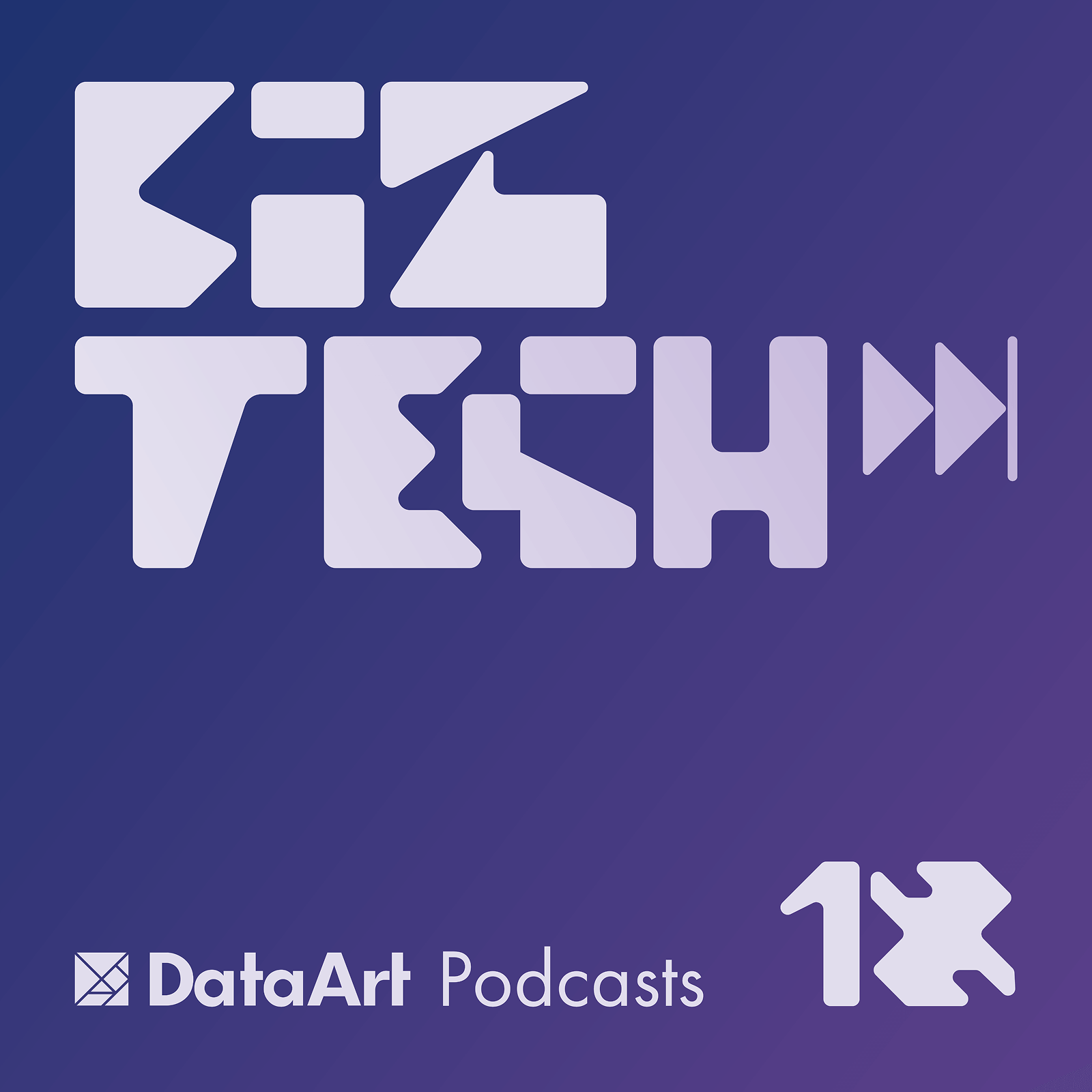
AI is supposed to be revolutionizing retail. Personalized recommendations, seamless checkout, virtual try-ons — the whole pitch. But if the technology is so good, why are physical stores still packed?
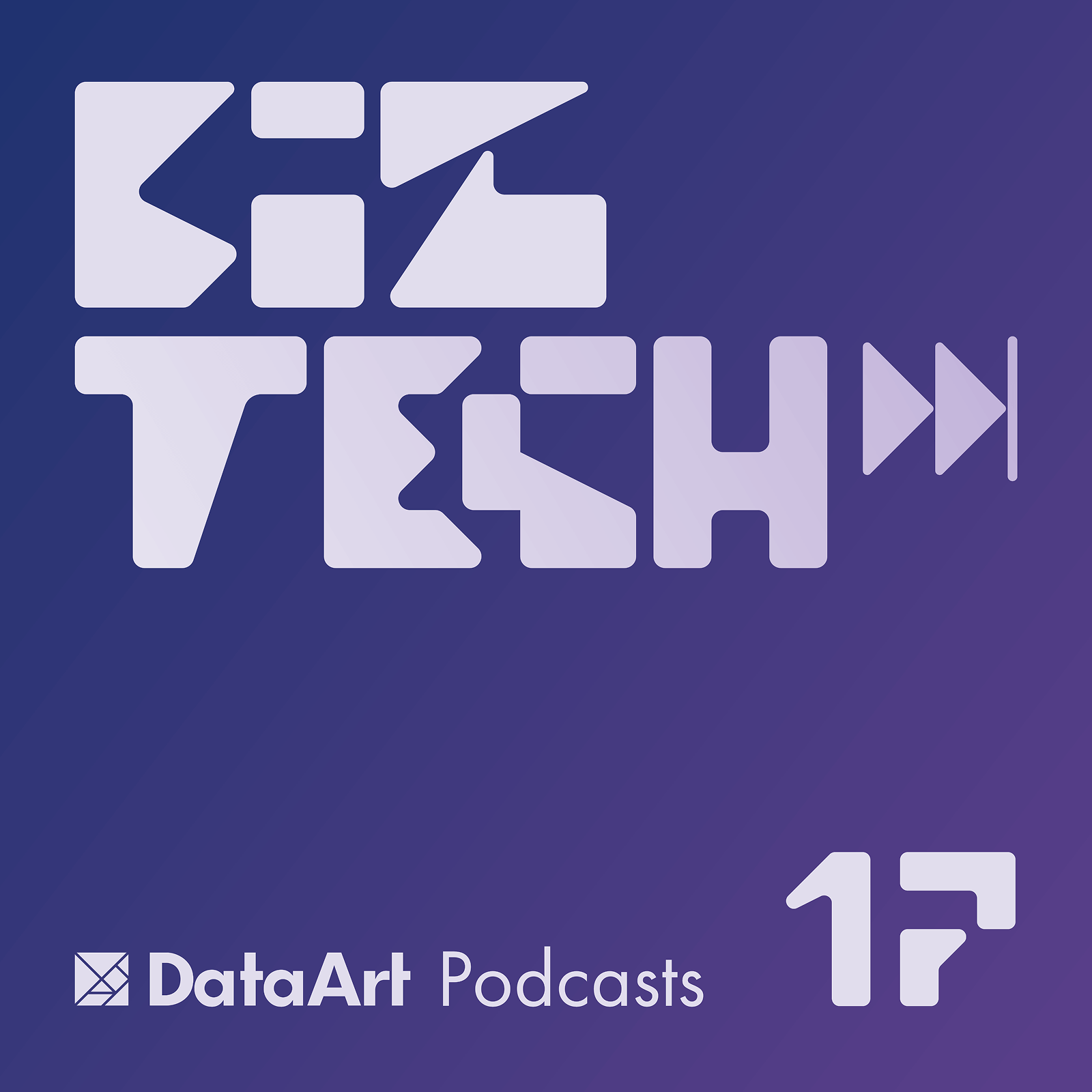
In this episode, Anni sits down with Alistair Wandesforde, SVP at DataArt, to see what companies say about their AI capabilities and what's really happening on the ground.

Season 2's most controversial moments! Eight tech leaders share their unpopular opinions on AI, recruitment, learning culture, market competition, and more.

We wrap up Season 2 with episodes 13-16! Featuring Doron Fagelson's fascinating look at how data is transforming art commerce, Greg Abbott's insights on the tech behind your next trip, Olesya Khokhulia on enterprise partnerships beyond just delivery, and Alexey Utkin's brutally honest conversation about data reality.

Join host Anni Tabagua for a Season 2 recap covering episodes 9-12! Featuring discussions on evolving client expectations, scaling learning culture, Latin America's tech boom, and the current state of tech talent.
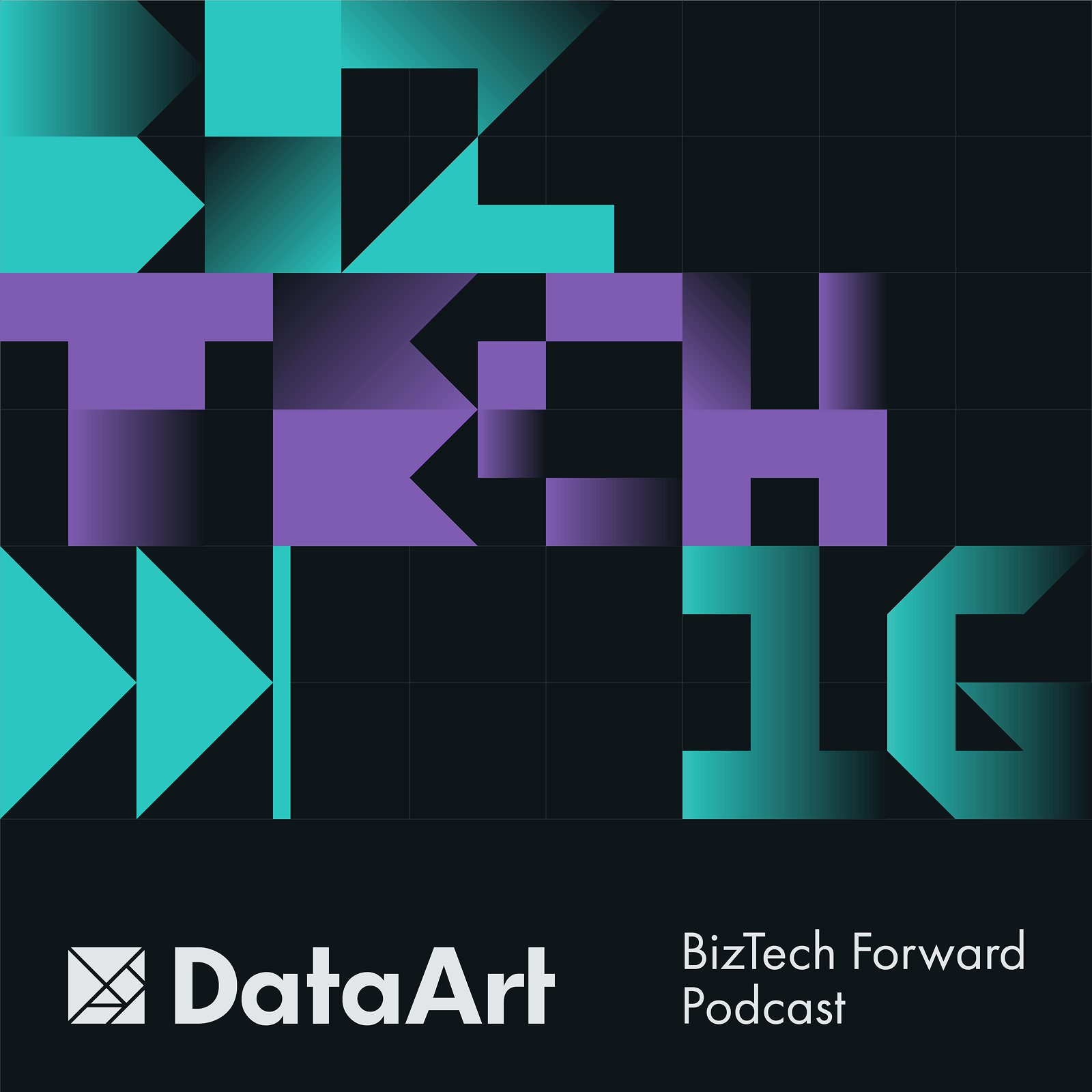
In this episode, Anni sits down with Alexey Utkin, Head of Data and Analytics Lab at DataArt, for a candid conversation about what’s really going on in the world of data.
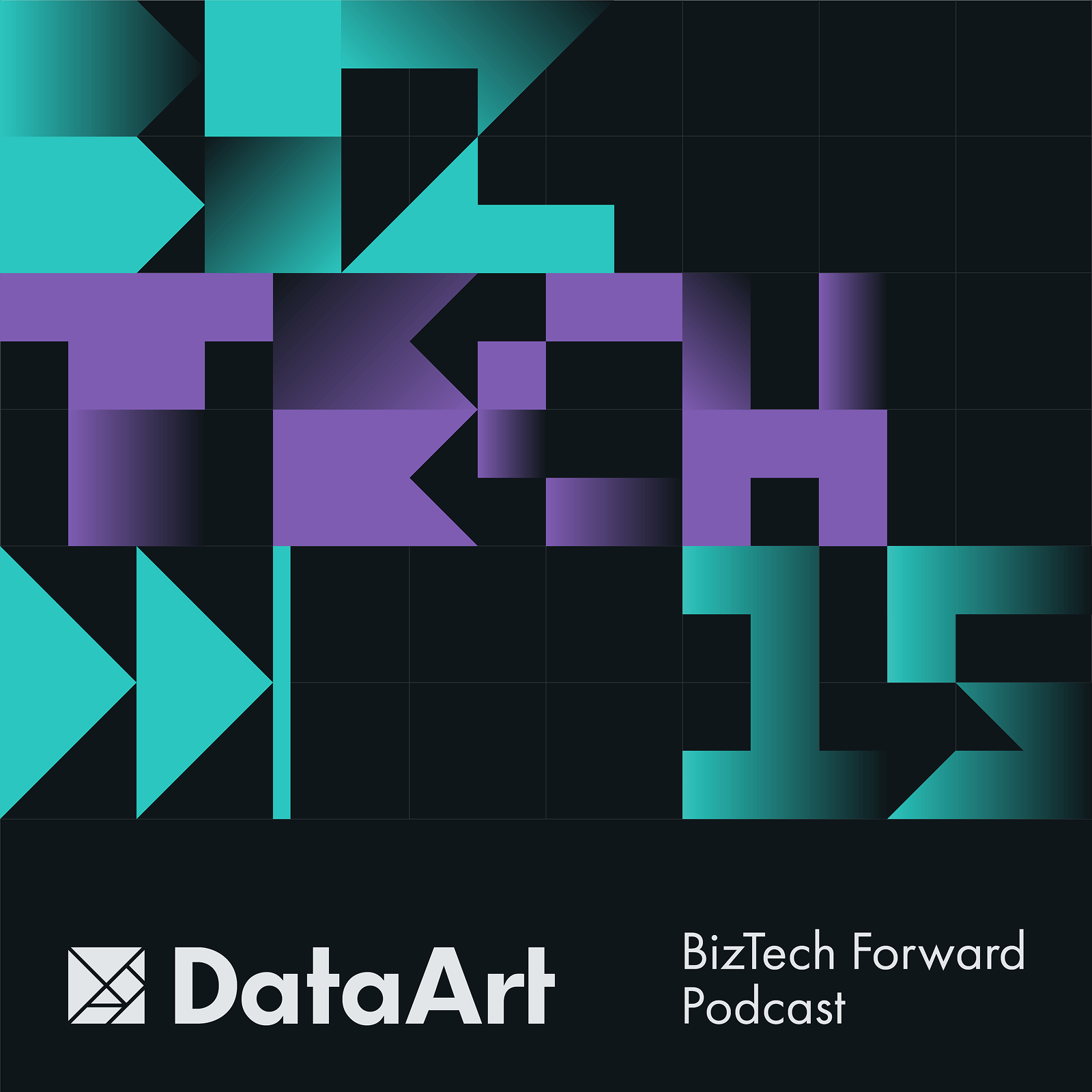
In this episode, Anni speaks with Olesya Khokhulia, VP of Global Enterprise Accounts at DataArt, about the evolution of client relationships, the quiet signals that build trust, and what it takes to stay relevant in an environment where expectations are always shifting.
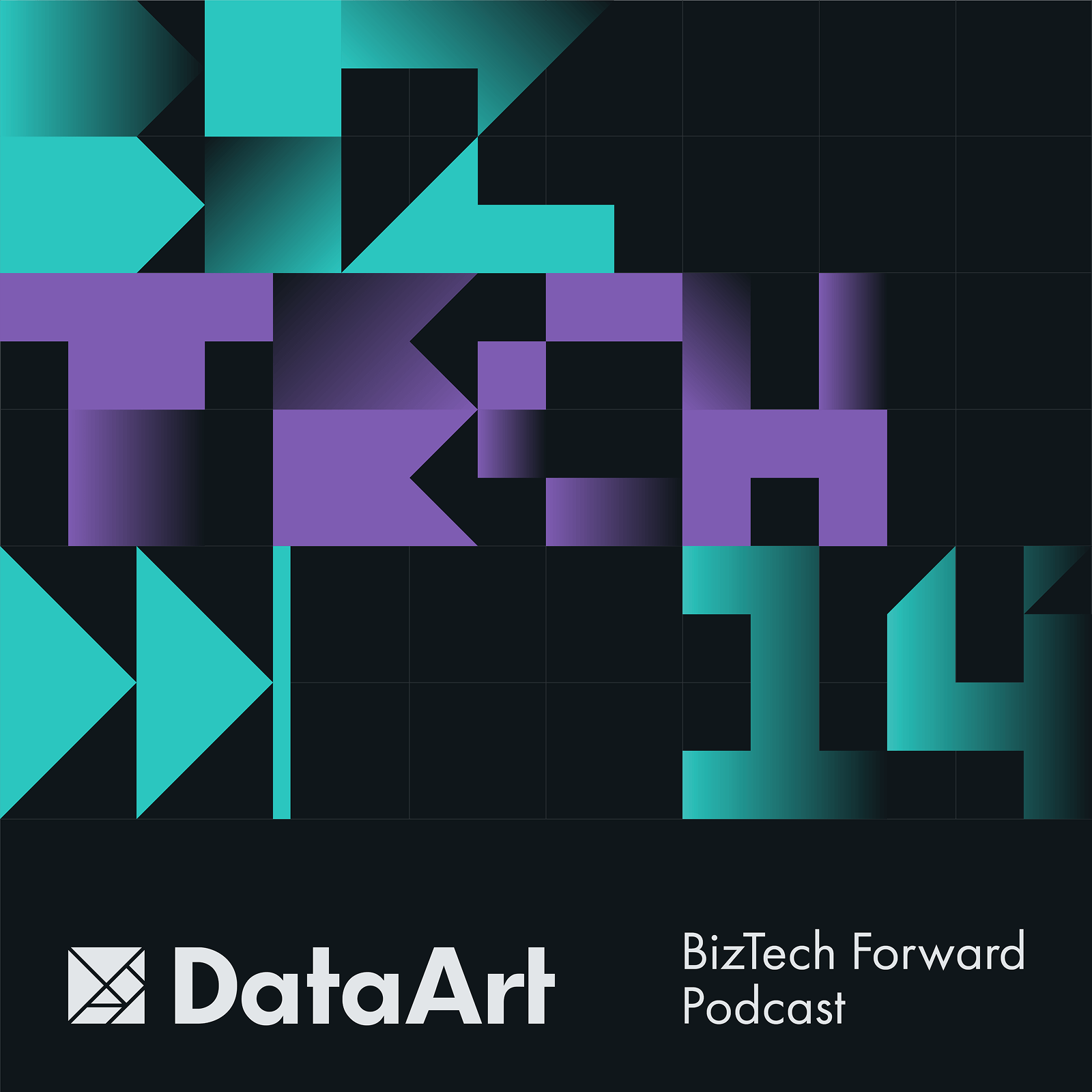
Travel is back — but it’s not the same. In this episode, we sit down with Greg Abbott, a veteran of the travel tech world with over three decades of experience, to talk about how the industry is evolving.

From ancient artifacts to AI-curated collections—art is evolving, and fast. In this episode, host Anni chats with Doron Fagelson, SVP of Media & Entertainment at DataArt, to explore how technology is transforming the art world, from online marketplaces to data-driven personalization and virtual galleries.

In this episode, host Anni chats with Julia Zavileyskaya, Chief People Officer at DataArt, about the biggest hiring trends, AI’s role in recruitment, and what really keeps employees engaged." Please find the episode's cover attached.
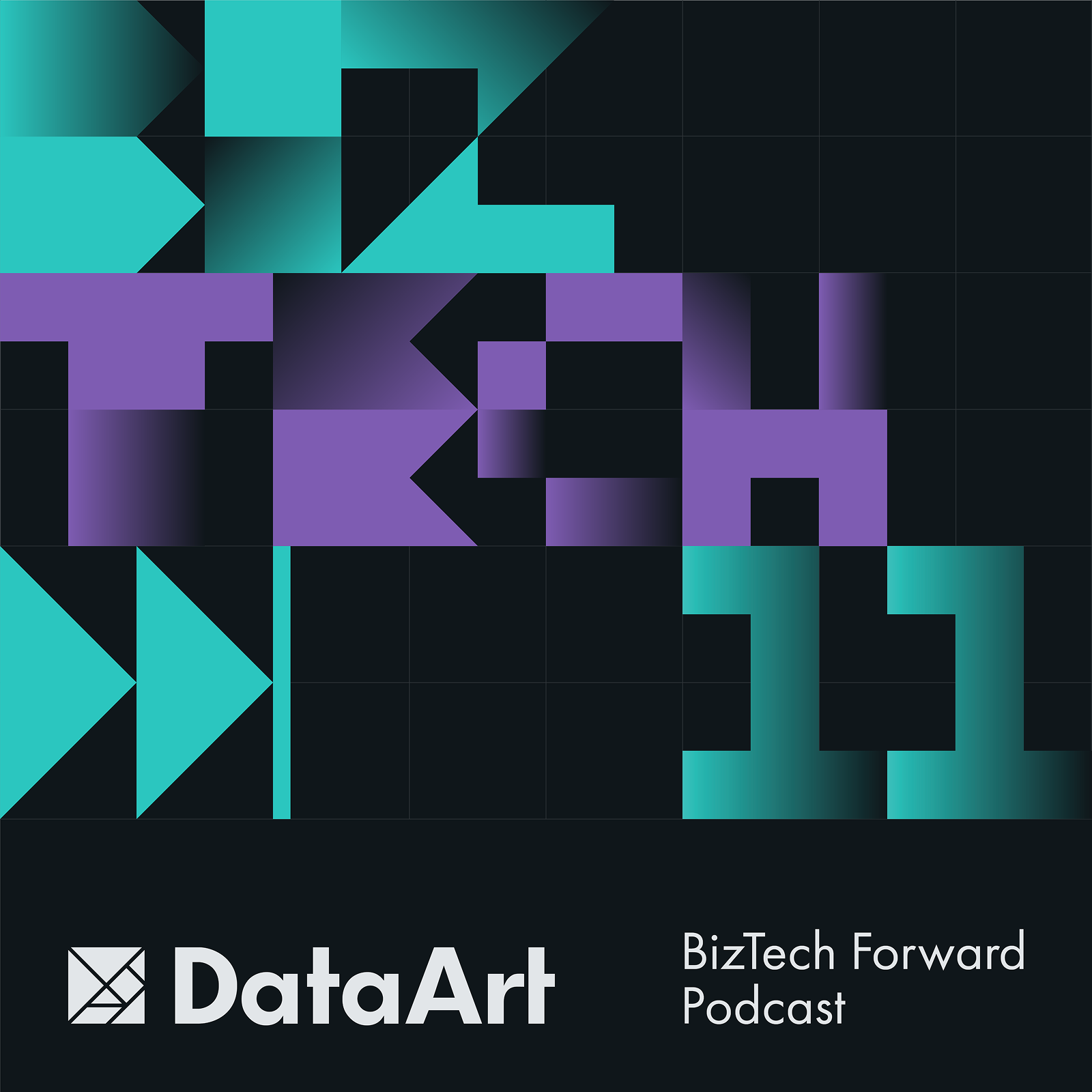
In this episode, Anni sits down with Marcos Mauro to discuss what’s fueling Latin America’s tech boom, how businesses and clients are adapting, and why it’s more than just an emerging market — it’s a global leader in the making.
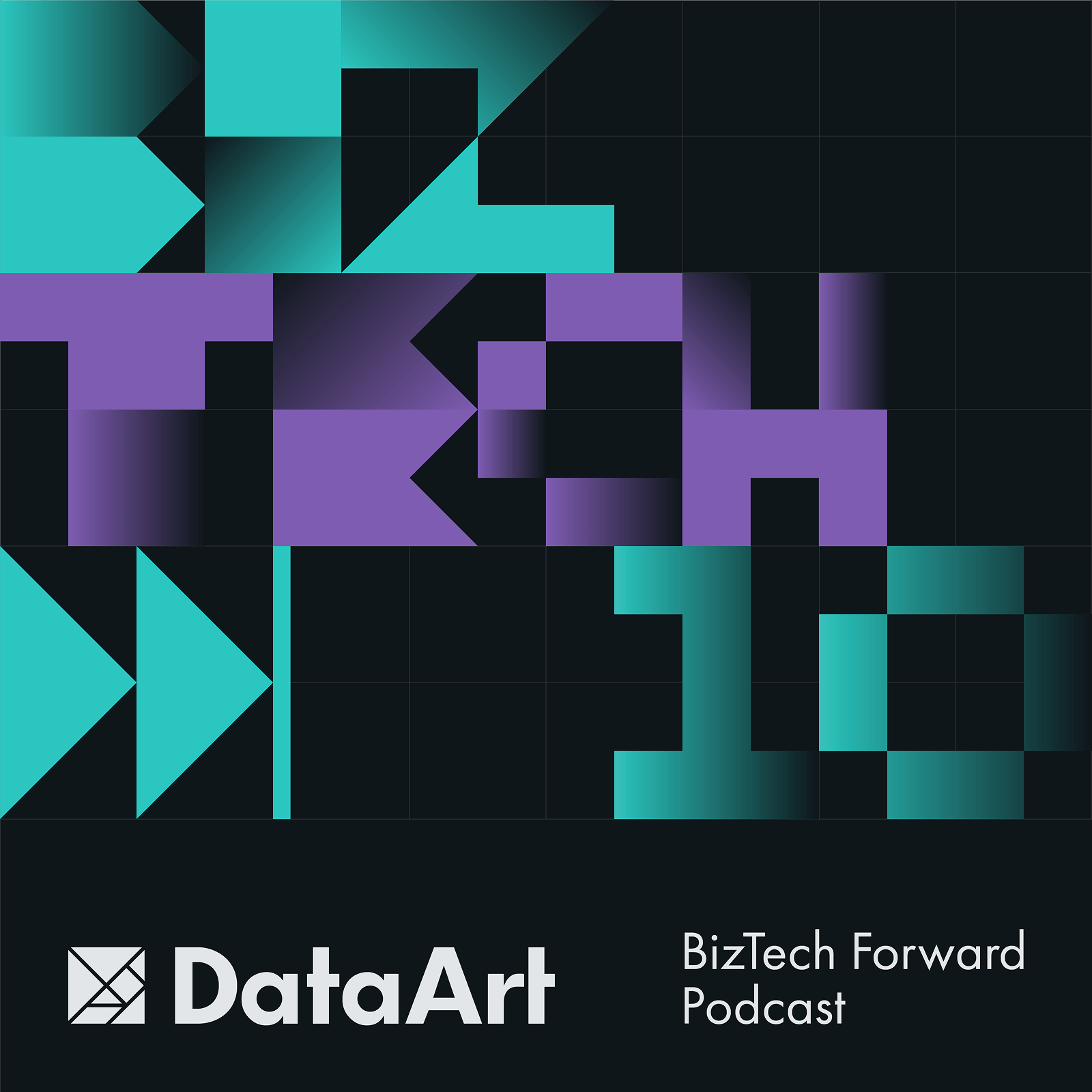
In this episode of BizTech Forward, Anni chats with Maryna Melink, Head of Learning and Development at DataArt, about how companies can create a culture of continuous learning, scale it across thousands of people, and deliver real business value.
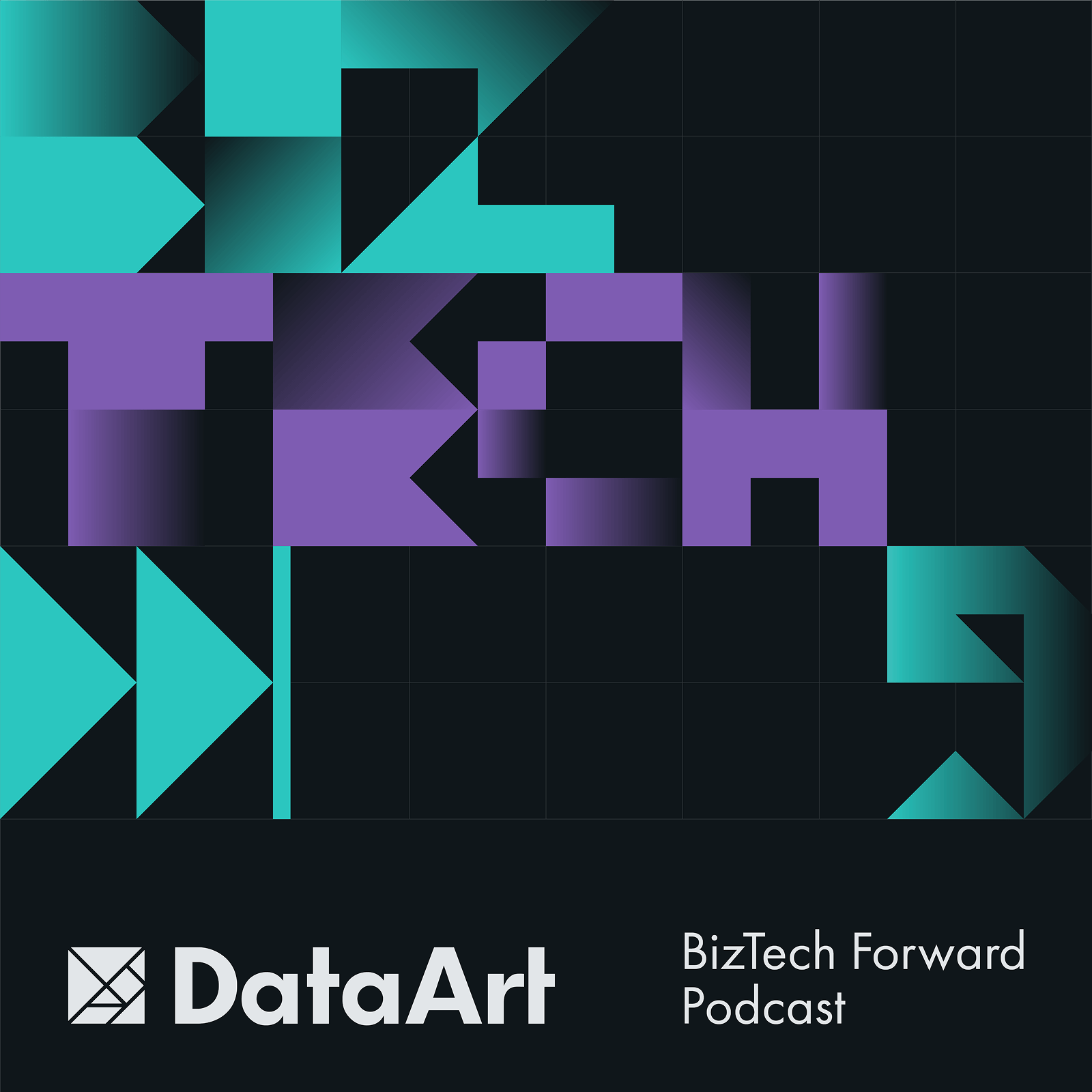
In this episode of BizTech Forward, Anni sits down with Mike Peterson, Advisory CTO / CIO, Mentor, and Coach, who discusses how client expectations from IT vendors have evolved over the past decade, what clients miss from the ‘old days,’ and how vendors can stay ahead in an ever-changing tech landscape.

This is a bonus episode of BizTech Forward: Season One Recap. Host Anni takes you through the eight episodes of the debut season, highlighting some of the best moments and setting the stage for season two!
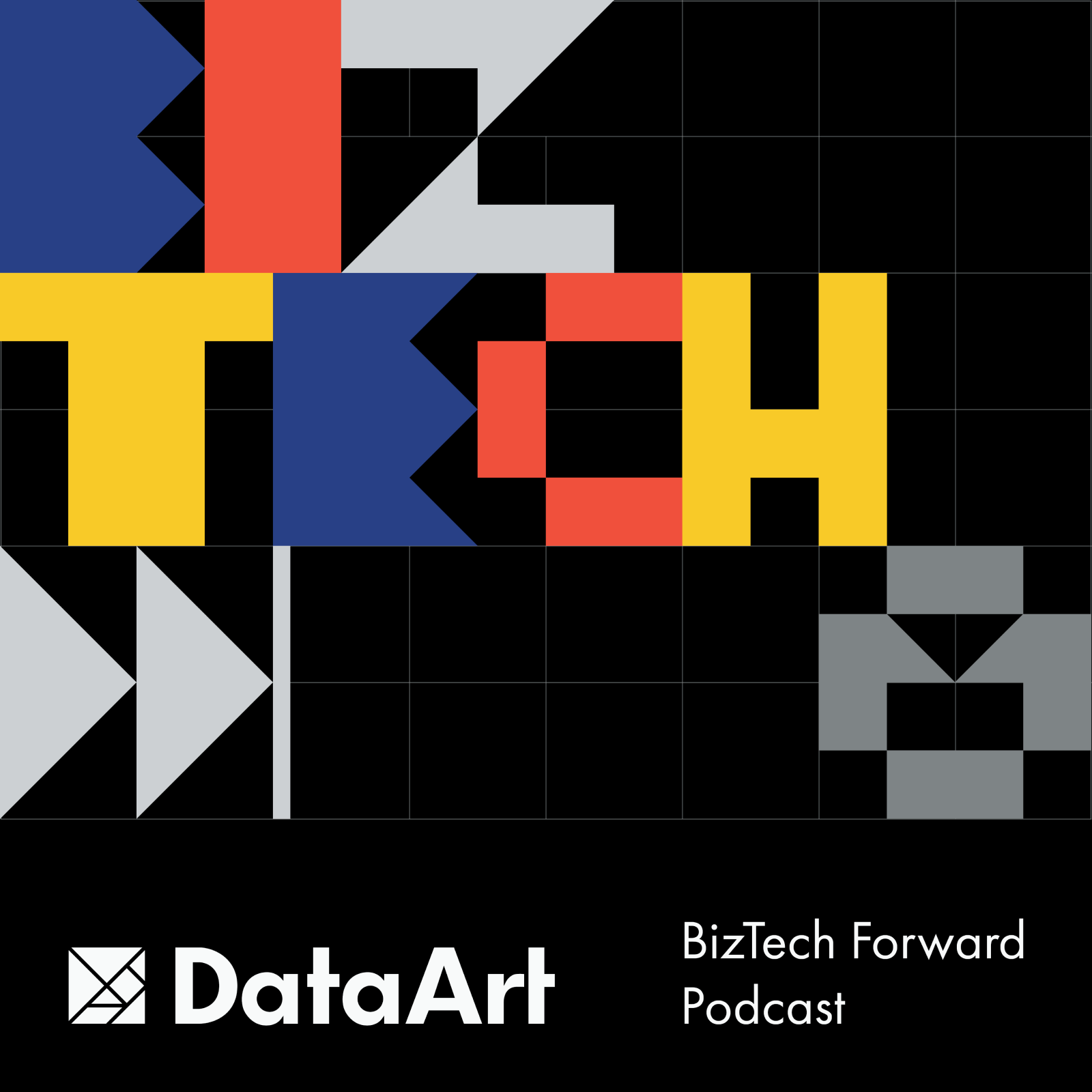
In this episode of BizTech Forward, Anni chats with Scott Rayburn, VP Marketing at DataArt, about how marketing has evolved with the rise of data and technology.
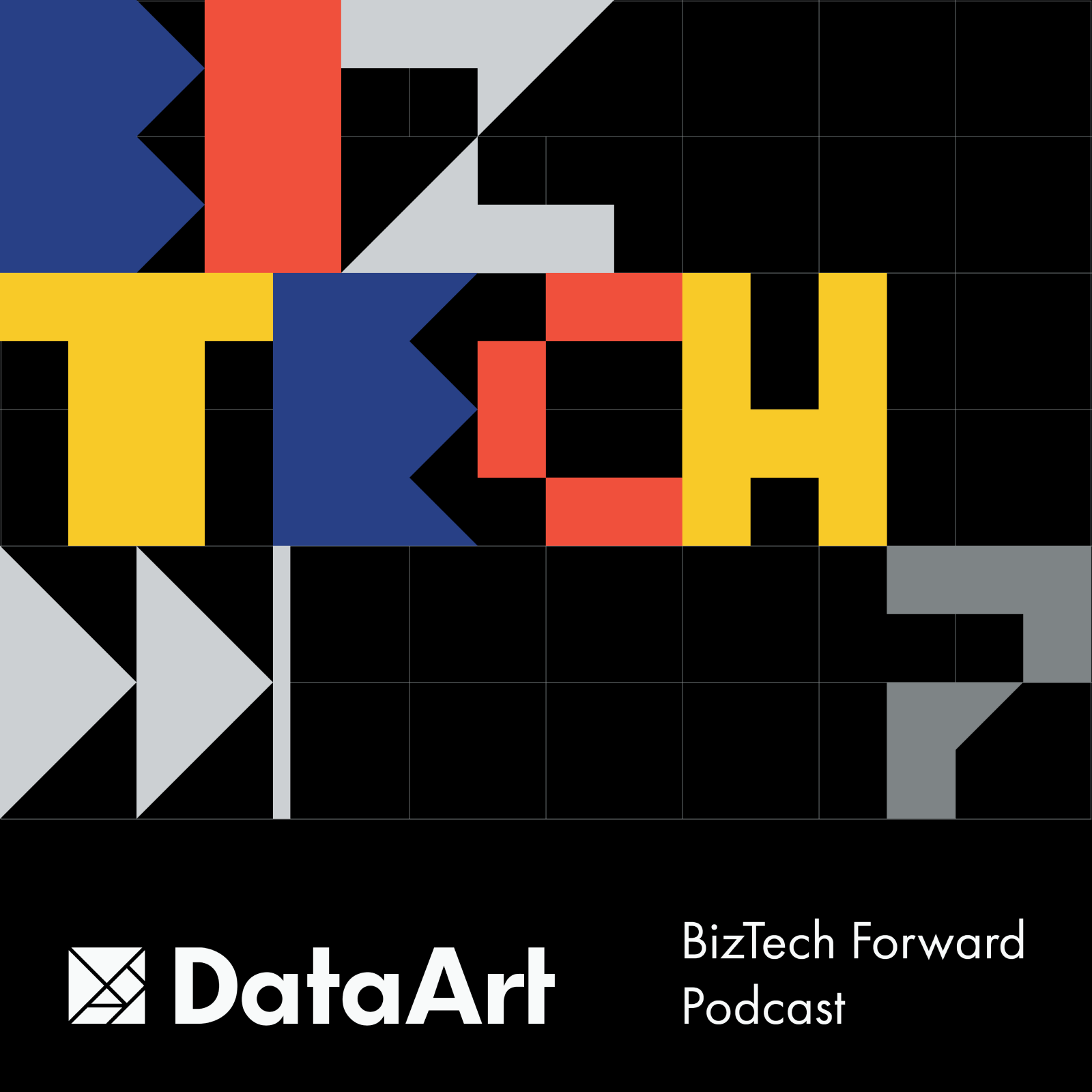
In this episode, Anni chats with Sheetal Kale, Head of DataArt India, about the country’s modern tech views, AI and data, IPO boom, and India’s gravitational pull in global decision-making.
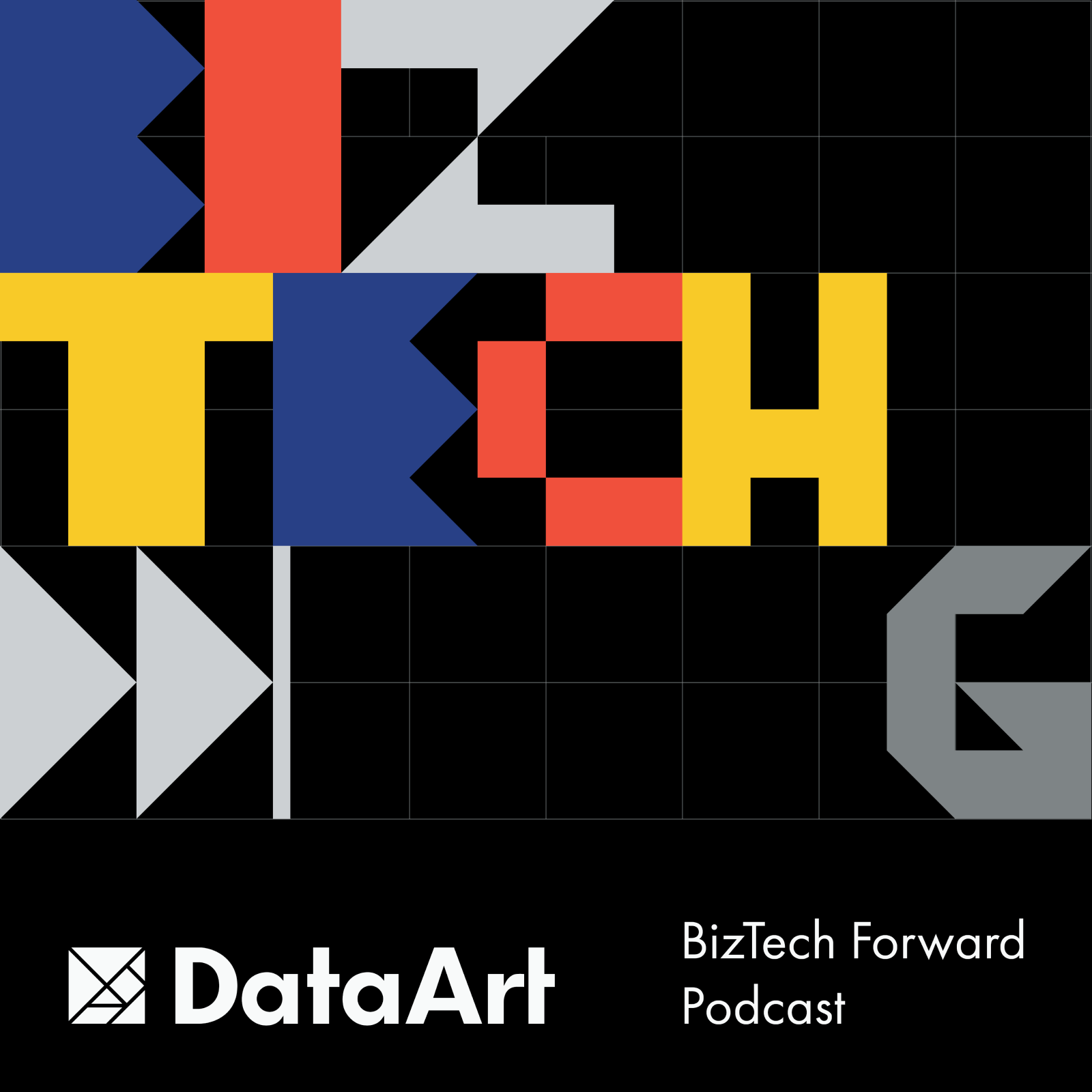
In this episode, we're joined by Tim McMullen, a true veteran in aviation tech, to discuss the latest aviation technology trends from the latest industry conferences and the future of aviation.
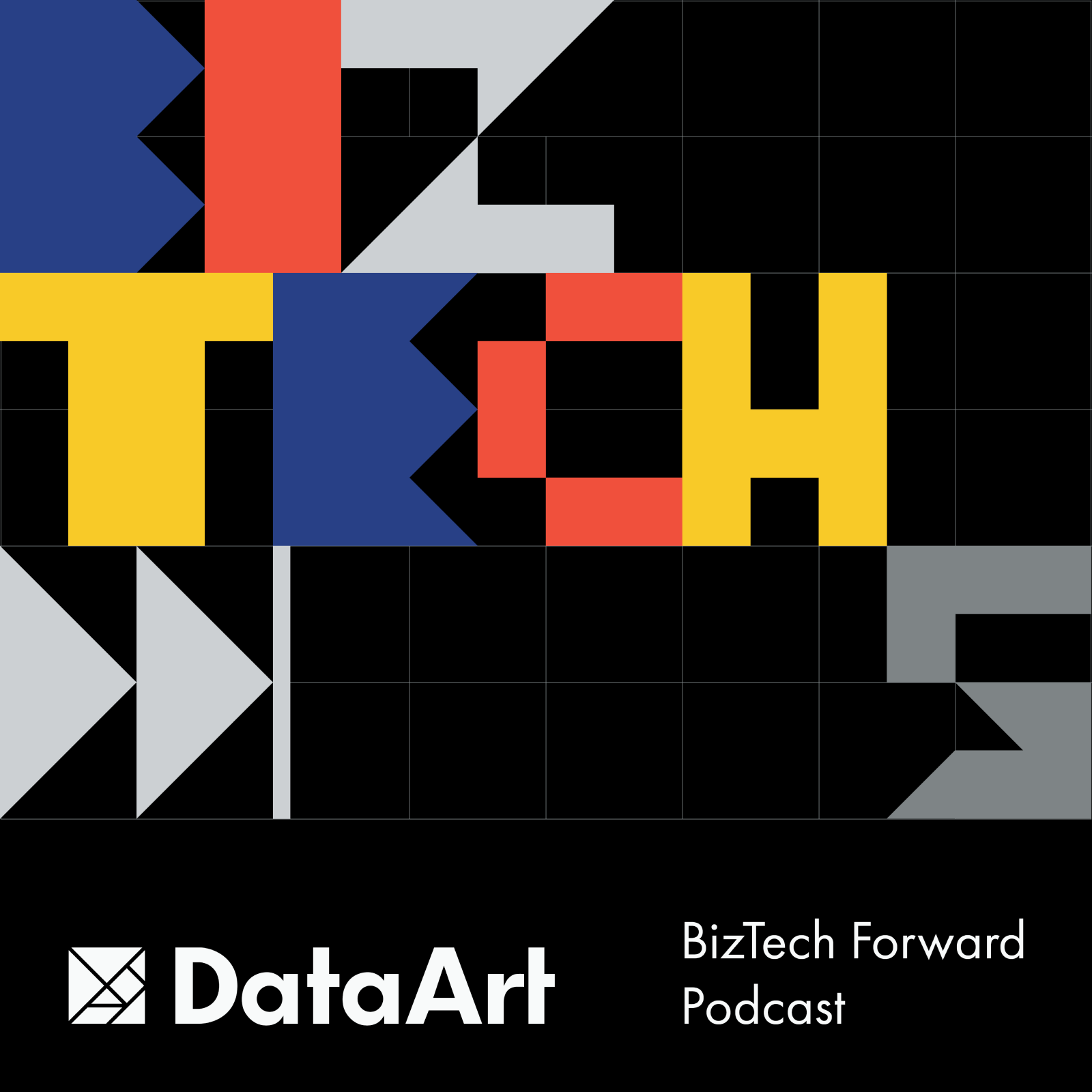
In this episode of BizTech Forward, Anni sits down with Anastasia Rezhepp, DataArt's Head of Design Studio, to talk about the evolution of design processes in the world of UX.
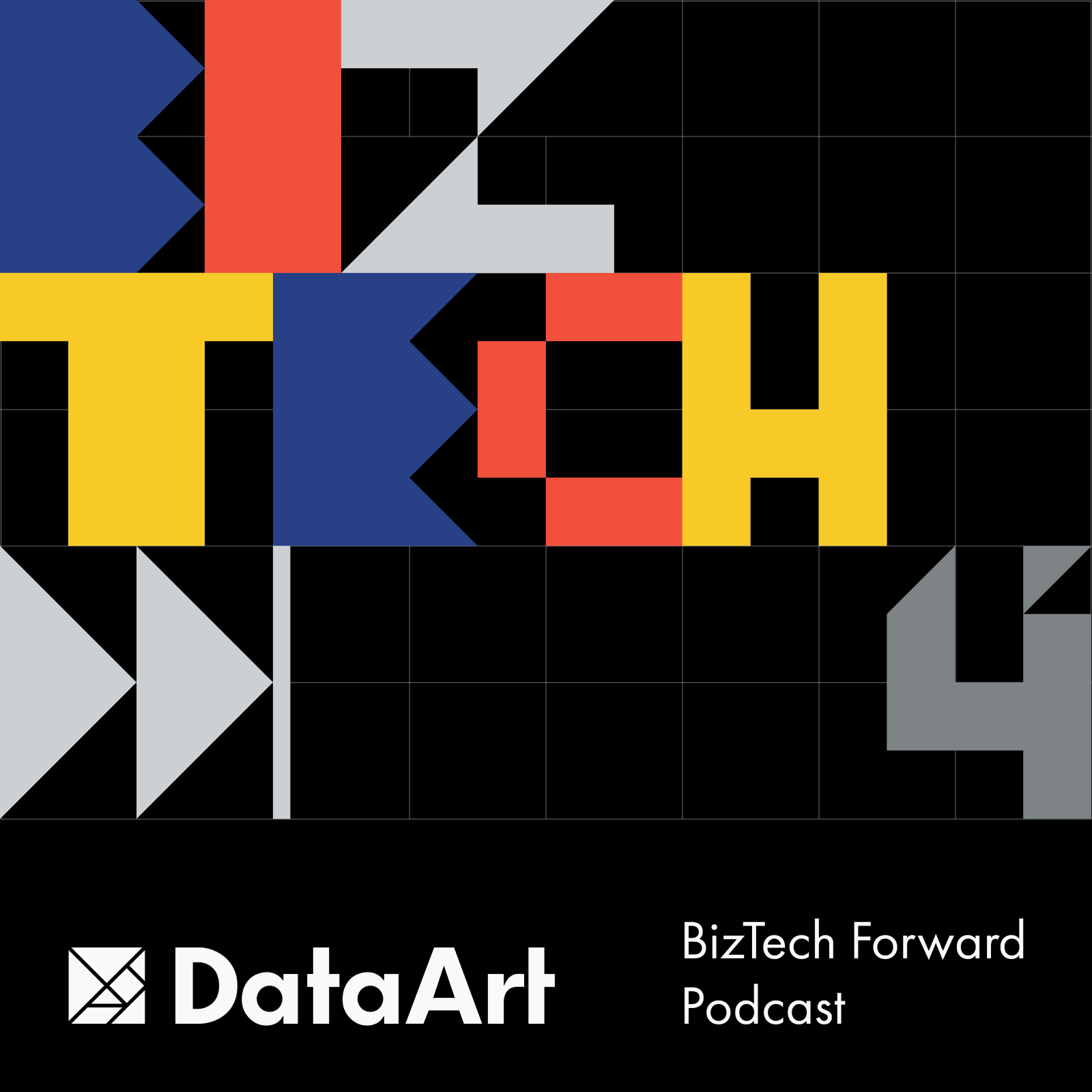
In this episode of BizTech Forward, we chat with Yuri Gubin, Chief Innovation Officer at DataArt, about why data quality is critical for AI success.

In this episode, we chat with Anna Velykoivanenko, Global Employer Branding Director at DataArt, about the perfect blend of technical know-how and human-centric skills.
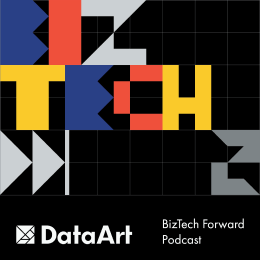
In this episode of BizTech Forward, Anni from DataArt’s Media Relations team chats with Alexei Miller, Managing Director at DataArt, about how businesses can truly measure the value of their IT investments.
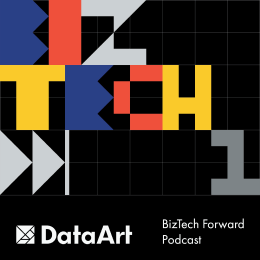
Join Anni Tabagua as we kick off our very first episode with a fascinating topic: AI in Automotive. Our guest is Dmitry Bagrov, the Managing Director of DataArt UK!
We Want to Hear From You!
Reach out to us with any comments, feedback, and questions by filling out the form.

Thank you for contacting us!
We will be in touch shortly to continue the conversation.






